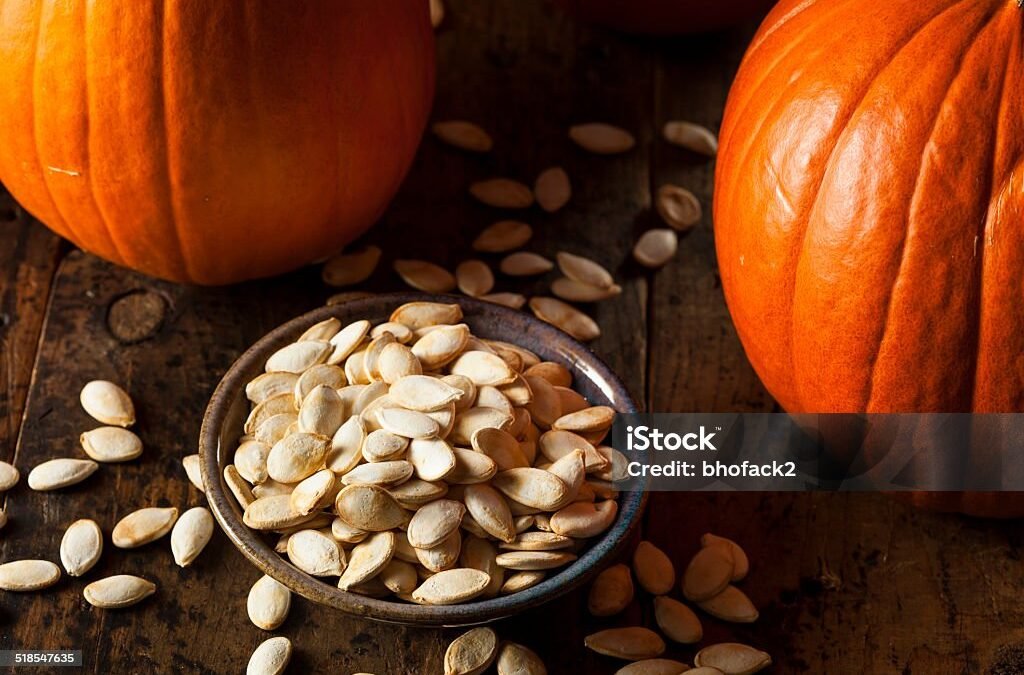Pumpkin seeds are a rich source of various nutrients that help maintain overall health. Here are the health benefits of pumpkin seeds you must know.
Do you discard the seeds of all fruits and vegetables? You should stop because some of them are nutritional powerhouses. Case in point – pumpkin seeds! This kid on the superfood block is an unsung hero you need to know more about. Don’t be fooled by the size of these tiny seeds as they are rich in various nutrients and offer several health benefits. From their crunchy, earthy flavor to their impressive nutritional profile, pumpkin seeds can become your secret weapon for staying fit and focused. Don’t believe us yet, let’s see the health benefits of pumpkin seeds.
What are the health benefits of pumpkin seeds?
Pumpkin or squash seeds are a storehouse of many nutrients, including healthy fats, magnesium, selenium, iron and antioxidants.
As it contains several nutrients, here are the health benefits of pumpkin seeds you should know:
Keeps your heart healthy
A good source of magnesium, zinc, polyunsaturated fatty acids and antioxidants, it can help keep your heart healthy. A study published in Complementary Therapies in Clinical Practice found that including pumpkin seeds in your diet can help lower blood pressure and cholesterol levels, both risk factors for heart disease.
High source of magnesium
Did you know that one of the biggest benefits of pumpkin seeds is that they are a natural source of magnesium? From controlling your blood pressure levels to reducing the risk of heart disease
to maintaining healthy bones to controlling diabetes, magnesium is important for maintaining overall health. Dietician Aruna Mallya says, “Magnesium is essential for bone formation and low
levels of this nutrient put postmenopausal women at risk of osteoporosis. A quick pre- or post-snack of these seeds helps meet the daily recommended dietary allowance of magnesium.”
Increases immunity
Pumpkin seeds contain zinc-like properties that help maintain a healthy immune system, according to a study published in the journal Food Production, Processing and Nutrition. Plus, they’re rich in iron, selenium, vitamin E and antioxidants, great for keeping your immune system healthy.
Induces sleep
Can’t sleep properly? Try adding pumpkin seeds to your diet. The dietitian explained that pumpkin seeds contain tryptophan, an amino acid that helps treat insomnia. “Our bodies convert tryptophan into serotonin, which is a feel-good hormone that makes you feel relaxed and sleep better.”
Good for digestion
Pumpkin is high in fiber and can help relieve constipation and improve digestion. A study published in the journal Nutrients found that the high fiber content in pumpkin seeds helps improve digestive health. Add pumpkin seeds to your diet along with exercise and lifestyle changes to maintain overall digestive health, says Mallya. It can also help you lose weight and control blood sugar levels.
Protect from cancer
A study published in the Journal of Medicinal Food found that pumpkin seed extract has properties that may reduce the risk of prostate cancer. Other studies have found positive effects of pumpkin seeds on cancer. Experts say the antioxidants in pumpkin seeds can help protect you against cancer.
Regulates blood sugar levels
Adding pumpkin seeds to your diet can even help control your blood sugar levels. A study in Nutrition Research found that people who added pumpkin seeds to their diet had lower blood sugar levels. So, it can help people with type 2 diabetes control your blood sugar levels. However, more research is needed to know the effect of pumpkin seeds on diabetes.
How to add pumpkin seeds to your diet?
Since pumpkin seeds are rich in nutrients, it becomes important to know how to include them in your diet. Here are some expert tips to help make pumpkin seeds a part of your diet.
Use it as a thickening agent in gravies and curries.
Add them to breakfast cereals and breads.
You can roast them and eat them as a snack.
Pumpkin seeds can be added to smoothies and energy bars
You can add them to salads and soups.
Are there any side effects of eating too many pumpkin seeds?
Pumpkin seeds have benefits for everyone, but you should be careful that you eat them in moderation. Pumpkin seeds provide about 163 kcal of energy, 8.5 g of protein and 13.9 g of fat. It contains other nutrients that can help you maintain overall health. You can add this nutritious and delicious superfood to your diet and eat it at any time of the day. However, excess consumption of anything should be avoided to reduce the risk. It goes without saying that you should add pumpkin seeds to your diet only after talking to a doctor.


Recent Comments